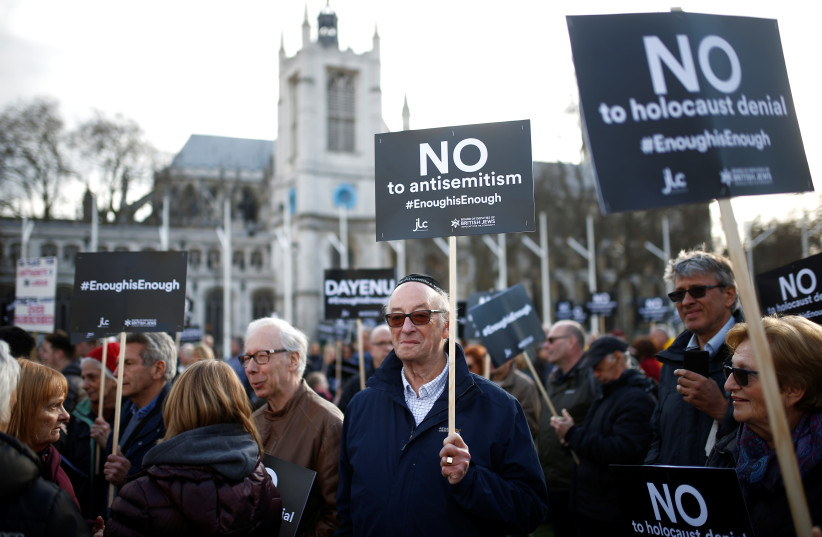The share of US adults who say there is a lot of discrimination against Jews in society has doubled from 20% in 221 to 40% today, according to a report released Tuesday by Pew Research Center about US views on discrimination and free speech in the context of the Israel-Hamas war.
Pew said it conducted the survey for this report from February 13-25 among a nationally representative sample of 12 693 US adults. The report focuses on perceived levels of discrimination against Jews, Muslims, and Arab people in the US.
According to the report, many Americans sense that discrimination against Muslims and Jews has risen since the start of the Israel-Hamas war.
"The vast majority of US Muslims and Jews themselves agree: Seven-in-ten Muslims and nine-in-ten Jews surveyed say they have felt an increase in discrimination against their respective groups since the war began in October," the report said.

Free speech relating to the war
The survey also questioned respondents on their views on the limits of free speech relating to the war.
Participants were shown different types of speech and asked if people in the US should be allowed to express those opinions in public, even if some might find them offensive.
According to the report, most Americans say speech supporting or opposing Israeli statehood should be allowed but calls for violence should not.
The survey found that 94% of US Jews say there is at least some discrimination against Jews in society, and more say there is a lot of discrimination against Jews than say the same about Muslims.
"For Jews, this represents a shift: In our 2020 and 2013 surveys of American Jews, they were more likely to say that Muslims (as well as Black people) face a lot of discrimination than to say this about themselves," according to Pew.
Americans 65 and older are more likely to say there is a lot of discrimination against Jews in society and are also more likely to report an increase in discrimination against Jews than against Muslims or Arabs.
"By contrast, Americans ages 18 to 29 are more likely to say that Black, Muslim, Arab and Hispanic people experience a lot of discrimination than to say the same about Jews. Adults under 30 are equally likely to perceive an increase in discrimination against Muslims, Arabs, and Jews since the start of the Israel-Hamas war (47% each)," according to Pew.
Pew indicated the change in Jewish Americans' perceptions appears to be partially tied to the conflict in the Middle East.
However, seven in ten Muslim American respondents said discrimination against Muslims has risen since the start of the war.
The survey also asked questions about political party affiliation.
Democrats and Democratic-leaning independents are generally more likely than Republicans and Republican leaners to say there is a lot of discrimination against Black people, Muslims, and Arab people, more than against Jewish people.
Democrats are also more likely since the start of the Israel-Hamas war to say discrimination against Muslims has increased. Democrats and Republicans agree that discrimination against Jews has increased since the outbreak of the war.
